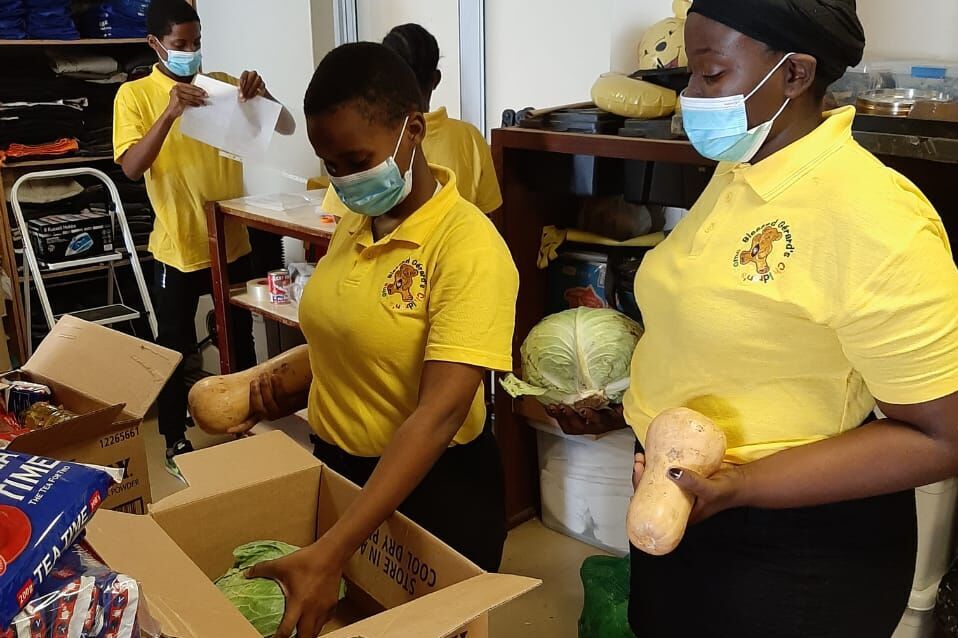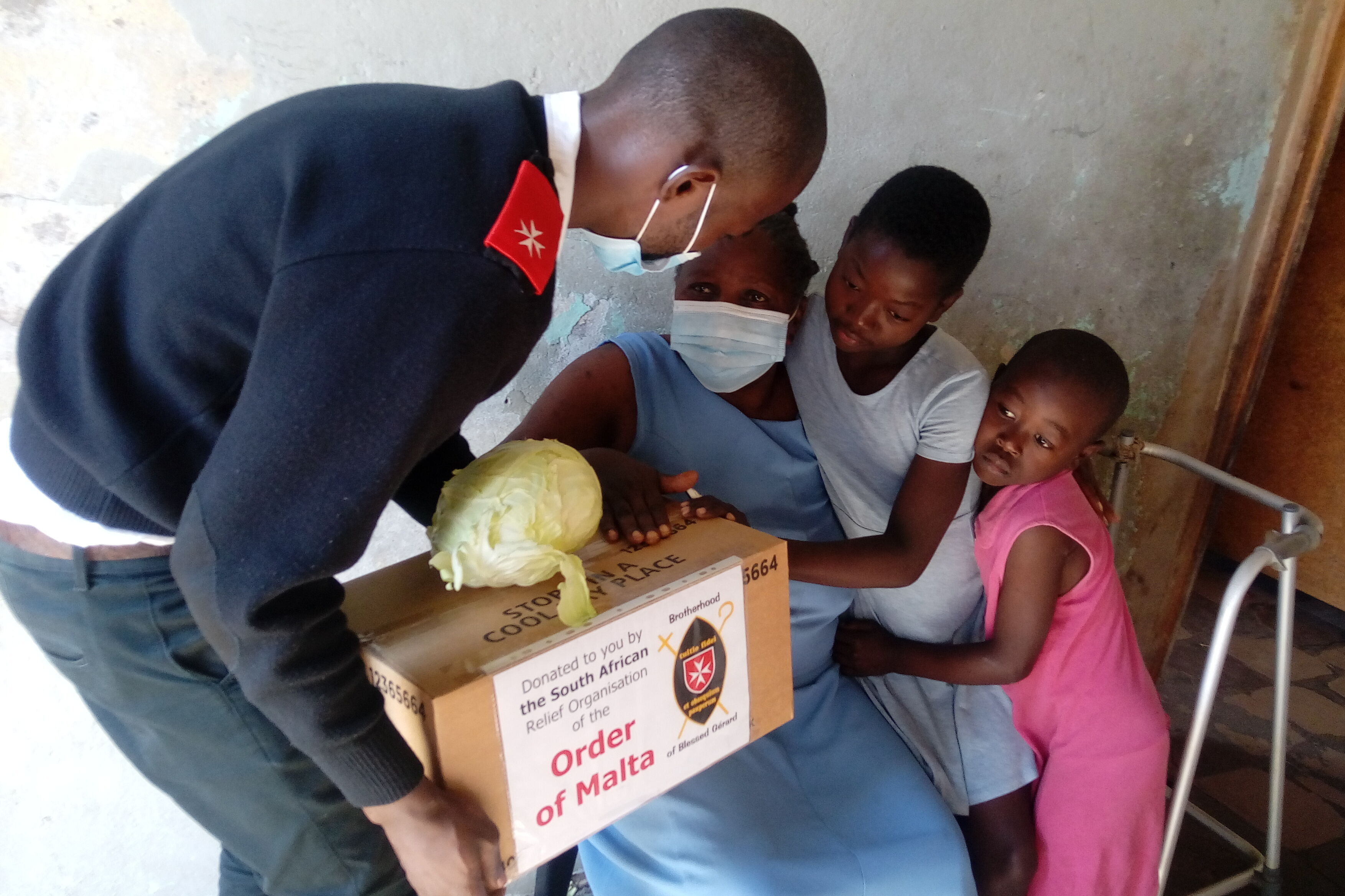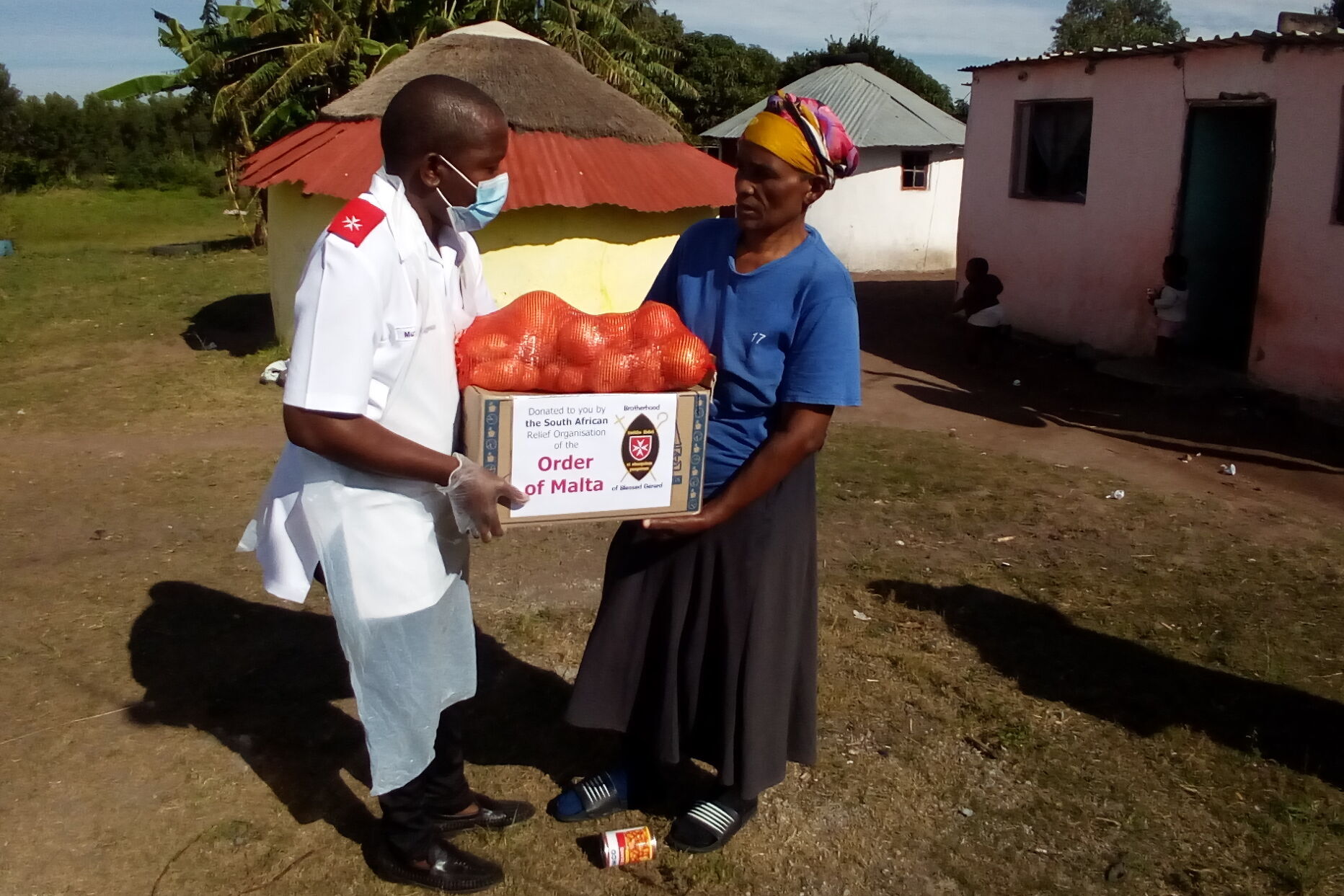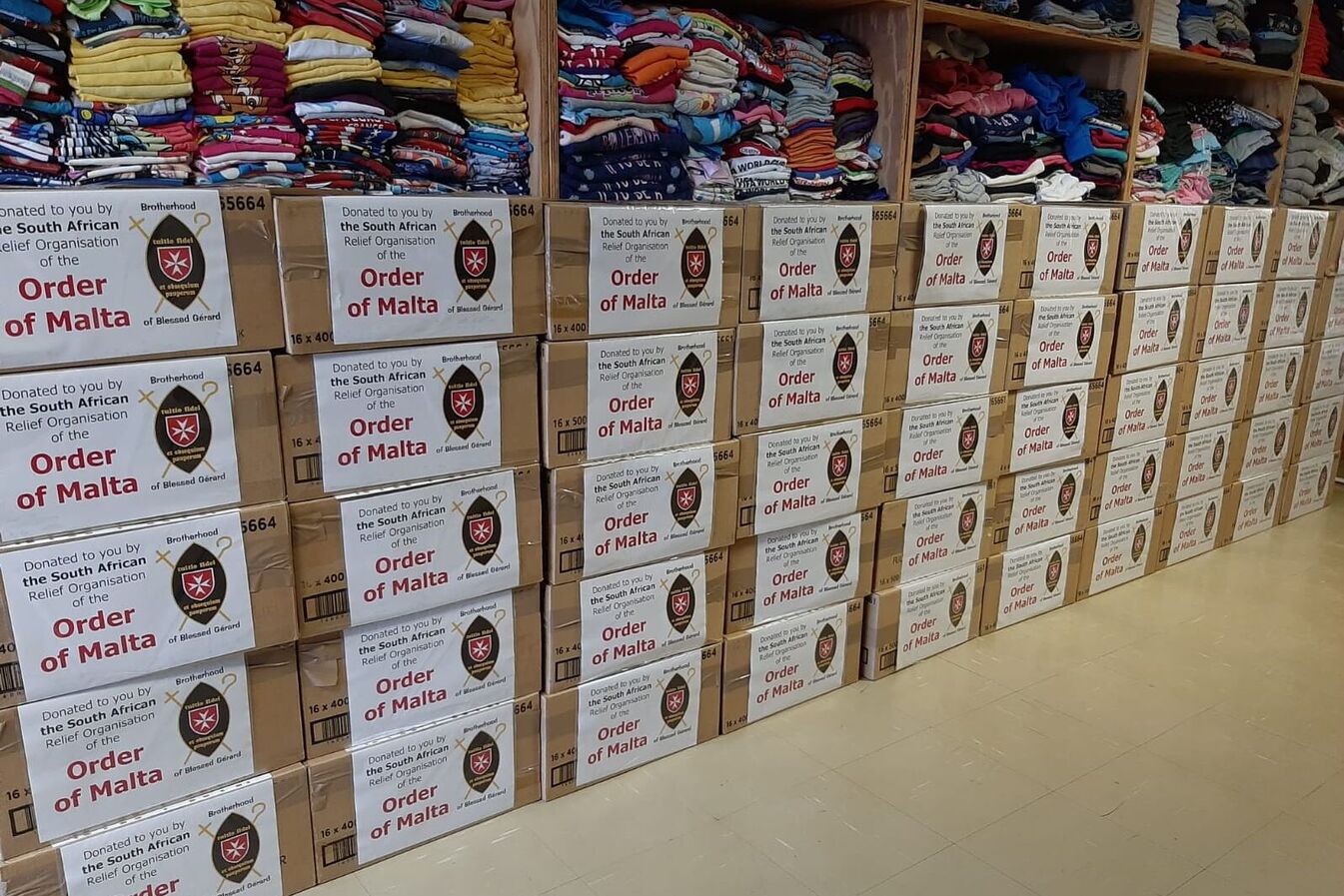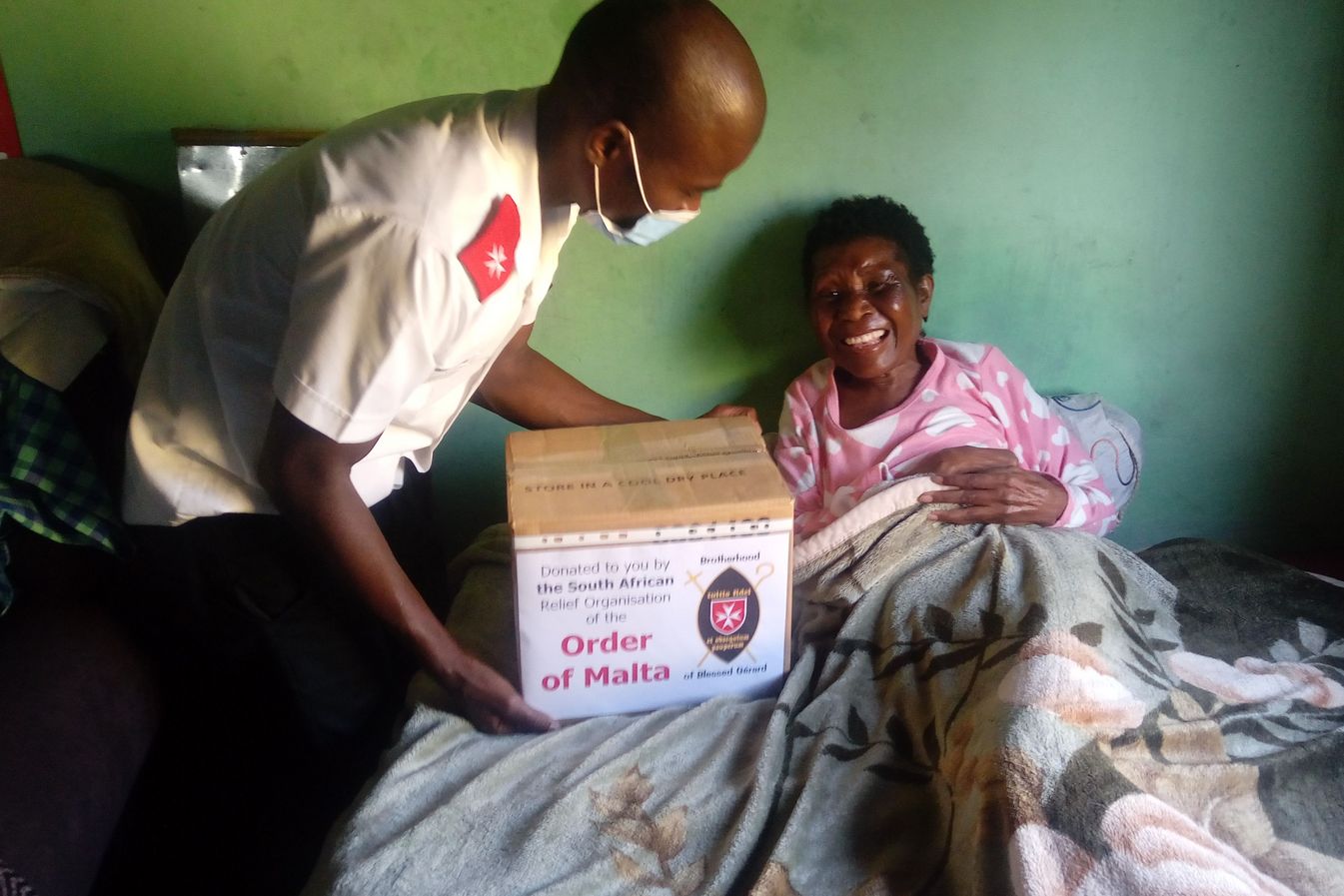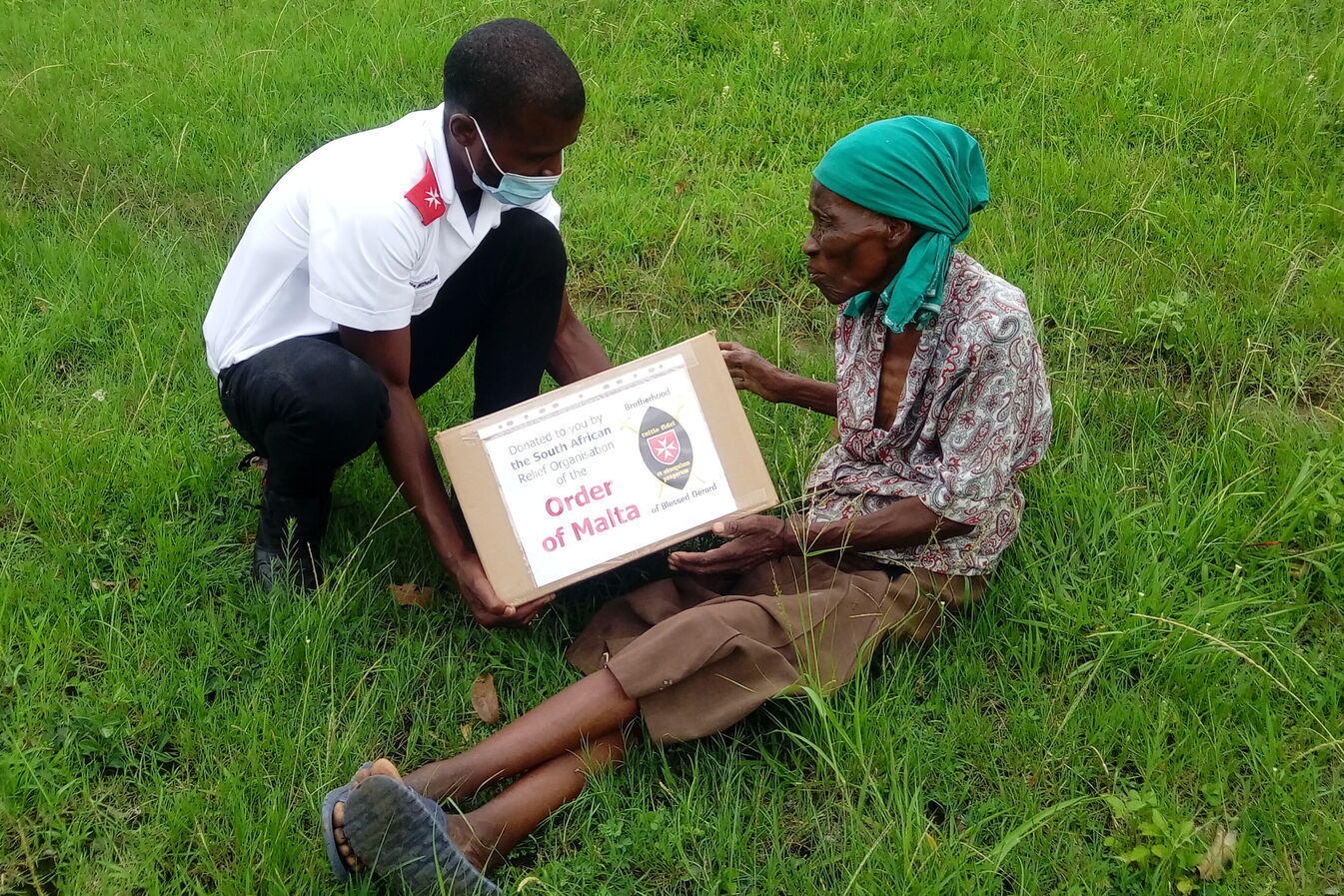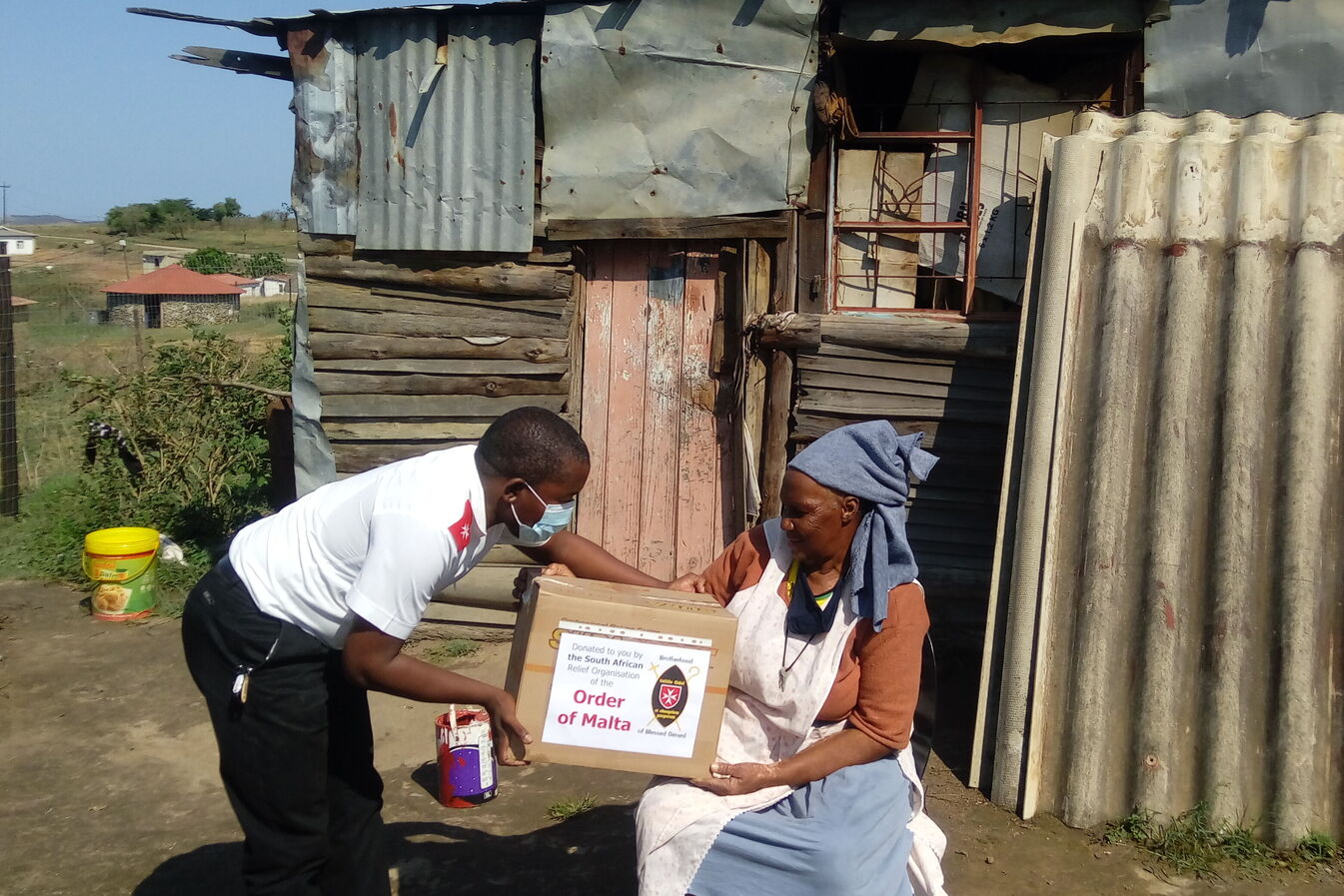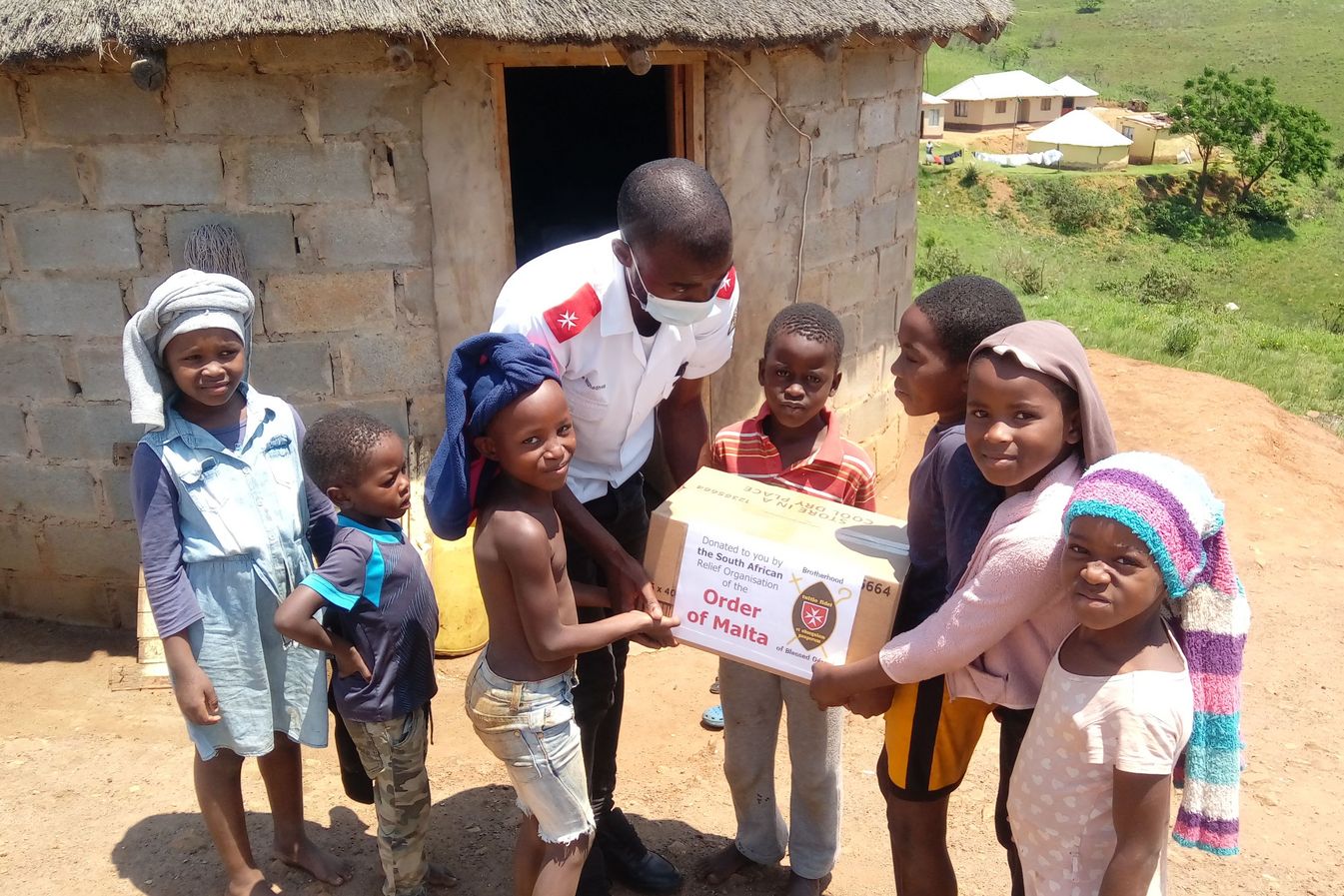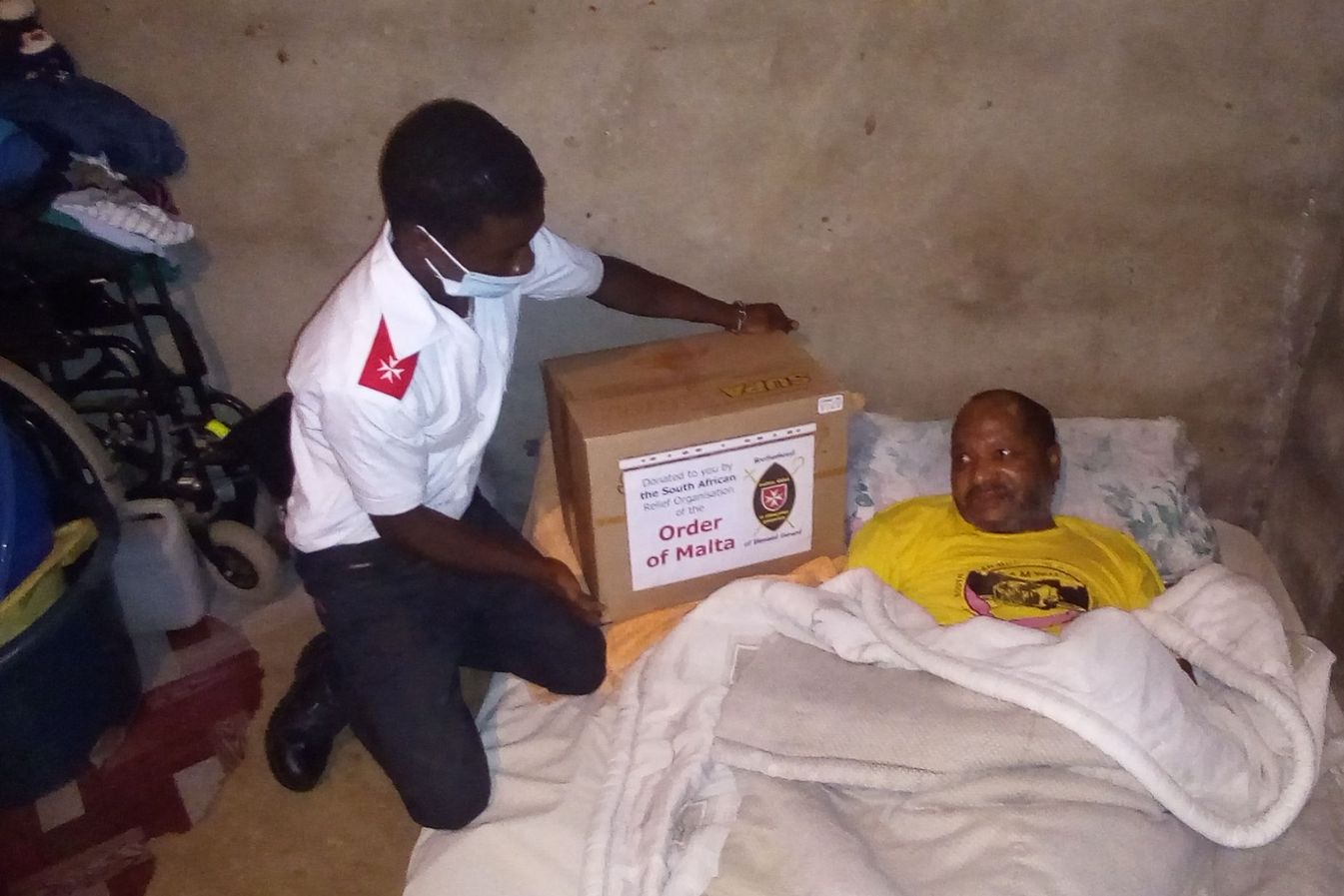How we help people in need through Covid-19
South Africa, like almost every country in the world, has been facing the problems of the Covid 19 pandemic since March 2020.

The highly contagious virus poses particular problems for the poor. As Father Gerhard mentioned in an interview with Vatican Radio: "The big problem is that we have a large part of the population in informal settlements and in townships where there is no social distance, if you live in a shack where 15 people live in one room, you cannot keep social distance." In addition, people in informal settlements and slum-like townships have no way to wash their hands or follow the rules of good hygiene: "If you have to walk hundreds of metres to the river to fetch water, you cannot wash your hands and you have no way to disinfect yourself with a chemical disinfectant: This is a big problem."
The government had imposed a three-week curfew for the first time on 26 March 2020 and we had to respond very quickly to ensure that our patients were cared for during this period.
We have close to 700 AIDS patients in a very extensive treatment programme. In preparation for the curfew, Father Gerhard explains, patients received their medication two months in advance, "so they don't have to come here. And so far they are safe." A similar strategy was adopted for the malnutrition clinic, where baby food was distributed to those in need throughout the curfew. The same was true for the home nursing programme. Those employed there augmented the number of staff in the Inpatient Hospice.
Father Gerhard was particularly keen to express his gratitude and admiration to his staff:
"I am very happy about our employees! They all remain faithful to their vocation as health care workers and come conscientiously to care for their patients and the children."
Curfews: a challenge for children's home
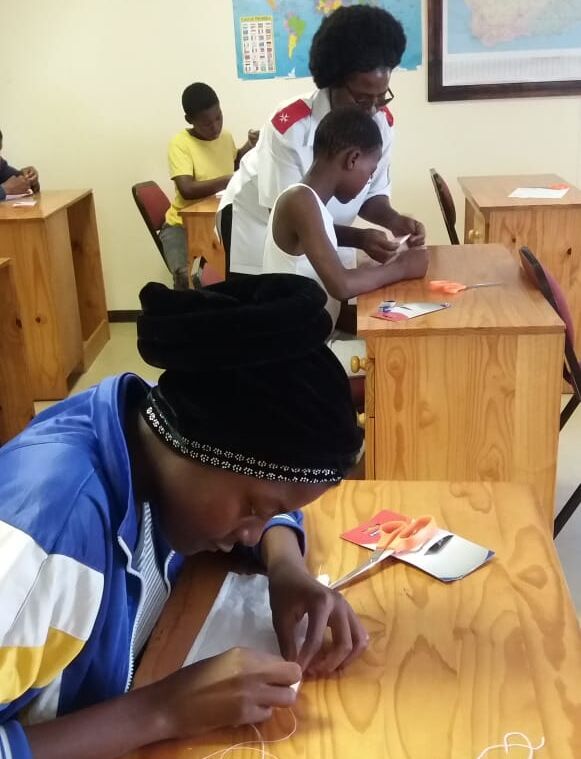
The first patient infected with the Sars Cov-2 virus in South Africa was registered on 5 March 2020. The government then quickly imposed a strict curfew. Shops and schools were closed. This was a big challenge for the children's home. 55 children to be at home around the clock. The caregivers and all the children, big and small, were taught the new hygiene standards. We are proud of our children because not only did they immediately adopt the new behaviour and hygiene rules, but they also helped with many new tasks, such as sewing masks for all the children or packing food parcels for the needy. The schools have recently reopened after weeks of closure, but we are concerned about this as the number of infections in South Africa is still rising. The members of our fraternity will do everything possible to protect our children and our patients.
South Africa is still suffering greatly from the pandemic and its aftermath. On 15 August 2020, the Minister of Cooperative Governance and Traditional Affairs extended the National Disaster Emergency for another month. Despite all these difficulties, we are faithfully caring for the high-risk group of our immune deficient and geriatric hospice patients and the children of our children's home, some of whom are particularly vulnerable due to previous illnesses. We also cared for our indigent home care and AIDS patients at home. Many of these patients and their families were starving after a four-month curfew. From 6 May to 14 July 2020, we did our best to distribute hundreds of food parcels. A food parcel costs 300 Rand | 18 € | 19 CHF.
Unfortunately, after 14 July 2020, we had to temporarily stop distributing food parcels due to the huge spread of Covid-19 in our region. We were aware of the plight of the people, but due to a shortage of staff due to illness - 16 of our 91 staff had contracted Covid-19 themselves, one of them even died - and due to the disproportionate risk of self-harm, our management had decided to suspend food distribution. During this time, unfortunately, we could only distribute food in the Care Centre itself, but not deliver it outside.
The distribution of food parcels resumed on 21 September 2020 and has continued uninterrupted since then
"Child headed families" in the Corona crisis
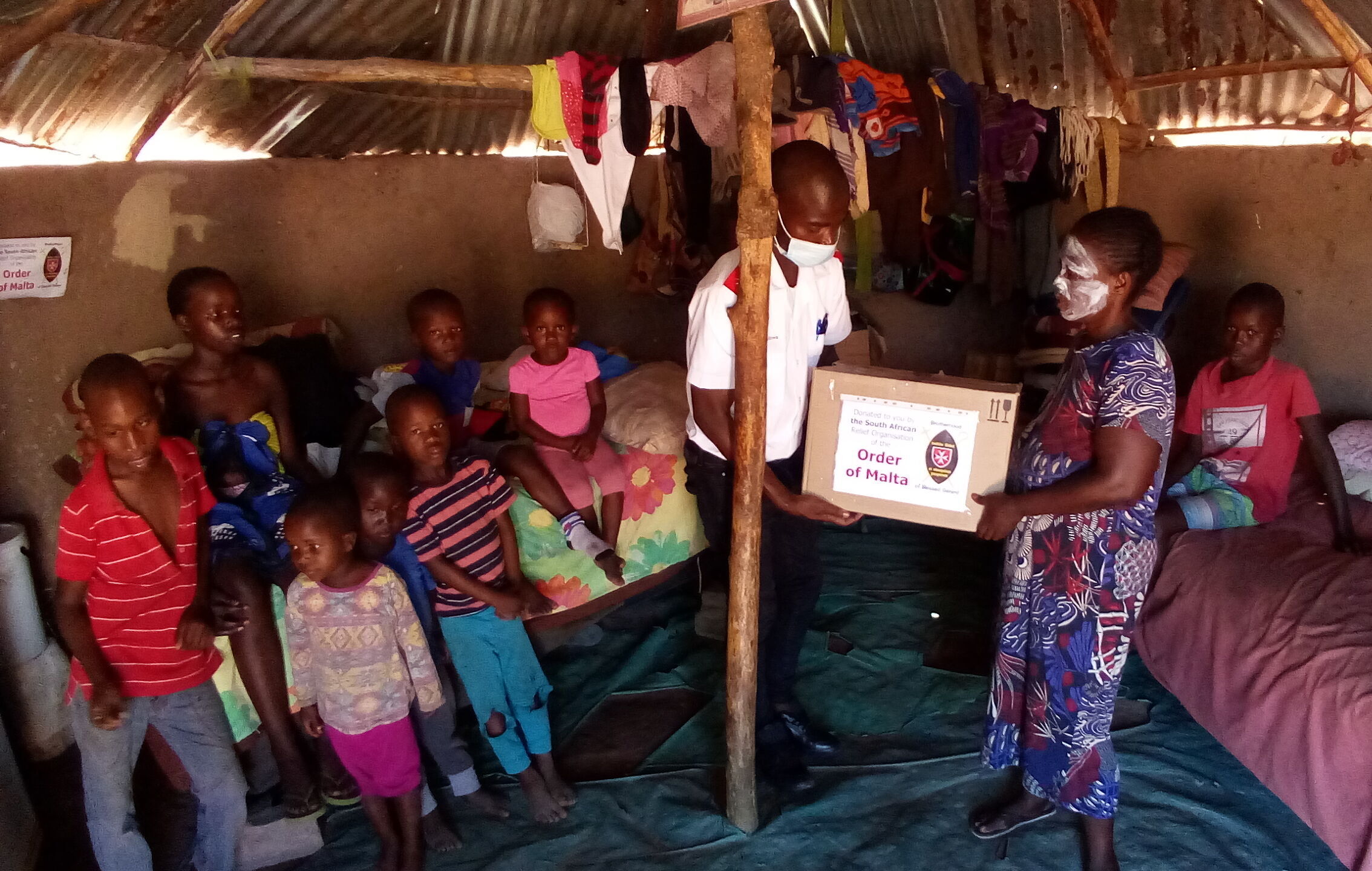
"Child headed families" are families whose parents and grandparents have died, where there are no uncles or aunts to step in, leaving the older siblings with no choice but to take on the responsibility of looking after the whole family.
Many of these children's families have been caused by AIDS. Unfortunately, the willingness of good people to adopt or take in "AIDS orphans" as foster children has been absolutely exhausted, as most families themselves struggle to raise the means to survive. Since siblings cannot receive child support for their brothers and sisters, they rely on field and gardening work, keeping a few chickens or goats, selling their produce by the roadside and occasional jobs to earn the meagre income to feed the family. Unfortunately, many of these young women see no other way to generate income than through prostitution. Children's families have been hit extremely hard by the Covid 19 curfews, as many of them have lost their jobs and their street stalls are no longer frequented. Hunger is the result.
We help fill this gap through our extensive food parcel distribution programme and donations of clothes, blankets and sometimes household goods when needed.
Food aid programme
CORONA: We help!
Many needy sick people and their families have lost their sources of income during the Corona period and are starving. We take care of them and have already distributed more than a thousand food packages. But there is still a need for many more.
A food parcel costs R400.00 | $27.00 | £21.00
